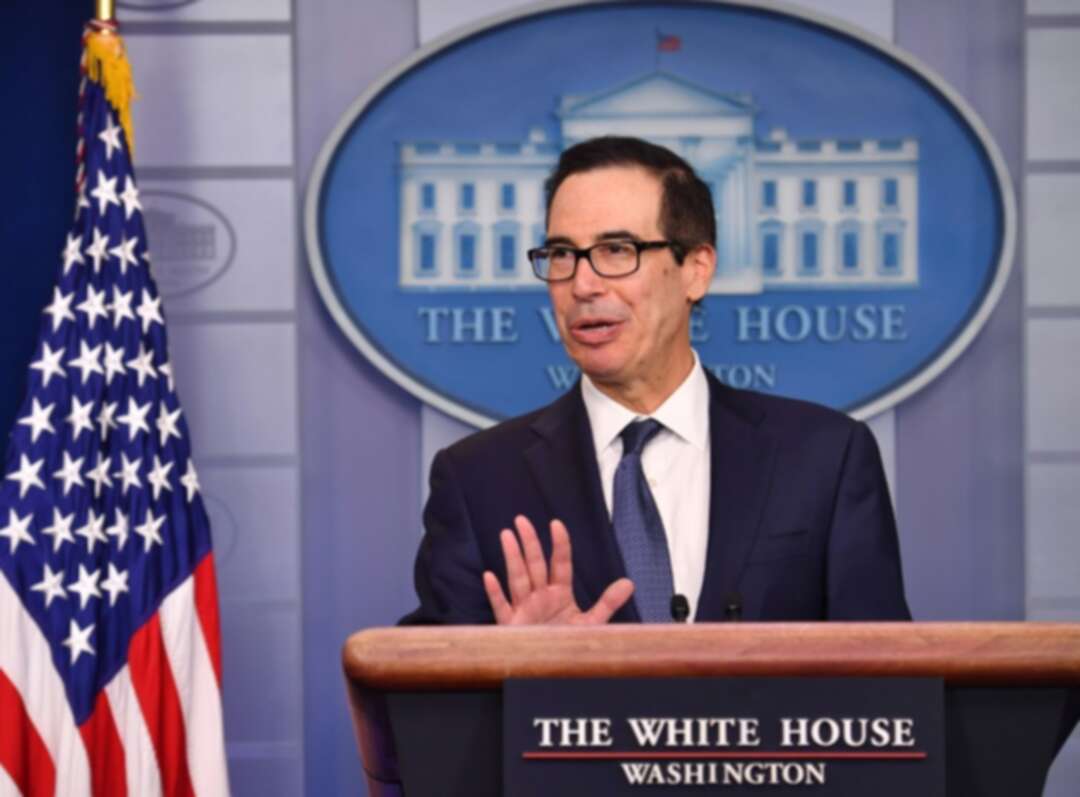-
US Treasury removes currency manipulator label on China

The United States on Monday removed the currency manipulator label it imposed on China last summer, in a sign of easing tensions between the economic powers after nearly two years of conflict.
Just two days before President Donald Trump is set to sign a "phase one" trade agreement with China, the US Treasury said in its semi-annual report to Congress that the yuan has strengthened and Beijing is no longer considered a currency manipulator.
Although Treasury refrained from slapping the label on China in its report last May, Trump in August angrily accused Beijing of weakening its currency "to steal our business and factories," re-stating a long-standing grievance.
Chinese authorities in August allowed the yuan to fall below 7 to the dollar, sending shudders through stock markets at the time and stoking Trump's ire.
"Over the summer, China took concrete steps to devalue its currency," also known as the renminbi (RMB), and those moves "left the RMB at its weakest level against the dollar in over 11 years," Treasury said.
However, more recently it strengthened to 6.93 to the dollar. Treasury said the new trade pact addresses currency issues.
"In this agreement, China has made enforceable commitments to refrain from competitive devaluation and not target its exchange rate for competitive purposes," Treasury Secretary Steven Mnuchin said in a statement.
However, that commitment is identical to the one Beijing has long made as part of the Group of 20 major global economies.
China's foreign ministry on Tuesday said it had "never been a currency manipulator," and that the United States' decision was "in line with the facts."
"We have not and never will use the currency exchange rate as a tool to address trade conflict," foreign ministry spokesman Geng Shuang said at a regular press briefing, adding that the International Monetary Fund had found the yuan's exchange rate "in line with the economy's fundamentals."
Though the semi-annual currency report always gains attention as a key sign of relations between the powers, the currency manipulator designation was largely symbolic.
The label calls for the US Treasury committed to working with the IMF to "eliminate the unfair competitive advantage" created by China's alleged actions and to consult with Beijing about the matter.
As part of the trade deal, "China has also agreed to publish relevant information related to exchange rates and external balances."
However, many economists questioned the decision to label China as a manipulator in the first place.
"China shouldn't have been designated to start with. Small current account surplus/GDP; scant intervention," Mark Sobel, a former Treasury official, said on Twitter.
While he acknowledged the large trade surplus, he said: "economists disregard those."
"RMB fell in response to Trump's tariffs. The designation was blatant/errant political act," Sobel tweeted.
And China expert Martin Chorzempa said the announcement was getting "way more attention than it should because it matters only on the most superficial symbolic level."
Mnuchin said the phase one deal is significant and "will lead to greater economic growth and opportunity for American workers and businesses."
However, Treasury said Beijing still needs to take steps "to stimulate domestic demand and reduce the Chinese economy’s reliance on investment and exports."
Top Chinese trade envoy Liu He arrived Monday in Washington on Monday ahead of Wednesday's expected signing of the agreement.
After multiple rounds of tariffs, the US trade deficit in goods through November 2019 was running at over $320 billion, which is about $62 billion below the same period of 2018.
Chinese customs data showed Tuesday that China's surplus had dropped 8.5 percent in 2019 to $296 billion.
"Treasury remains disturbed by the persistent and excessive trade and current account imbalances that mark the global economy," the report said.
The US Trade Representative's Office announced over the weekend that as part of the initial trade deal, Washington and Beijing will hold "at least bi-annual" meetings -- something that previous administrations did for years but that Trump scrapped in favor of a more aggressive approach.
Mnuchin and Federal Reserve Governor Jerome Powell are also will conduct macro-economic meetings with top Chinese officials "regularly," USTR said.
The currency report had eight other countries on the "monitoring list" due to concerns about their currency practices: Germany, Ireland, Italy, Japan, South Korea, Malaysia, Singapore, Switzerland, and Vietnam.
source: AFP
Tags
You May Also Like
Popular Posts
Caricature
BENEFIT Sponsors BuildHer...
- April 23, 2025
BENEFIT, the Kingdom’s innovator and leading company in Fintech and electronic financial transactions service, has sponsored the BuildHer CityHack 2025 Hackathon, a two-day event spearheaded by the College of Engineering and Technology at the Royal University for Women (RUW).
Aimed at secondary school students, the event brought together a distinguished group of academic professionals and technology experts to mentor and inspire young participants.
More than 100 high school students from across the Kingdom of Bahrain took part in the hackathon, which featured an intensive programme of training workshops and hands-on sessions. These activities were tailored to enhance participants’ critical thinking, collaborative problem-solving, and team-building capabilities, while also encouraging the development of practical and sustainable solutions to contemporary challenges using modern technological tools.
BENEFIT’s Chief Executive Mr. Abdulwahed AlJanahi, commented: “Our support for this educational hackathon reflects our long-term strategic vision to nurture the talents of emerging national youth and empower the next generation of accomplished female leaders in technology. By fostering creativity and innovation, we aim to contribute meaningfully to Bahrain’s comprehensive development goals and align with the aspirations outlined in the Kingdom’s Vision 2030—an ambition in which BENEFIT plays a central role.”
Professor Riyadh Yousif Hamzah, President of the Royal University for Women, commented: “This initiative reflects our commitment to advancing women in STEM fields. We're cultivating a generation of creative, solution-driven female leaders who will drive national development. Our partnership with BENEFIT exemplifies the powerful synergy between academia and private sector in supporting educational innovation.”
Hanan Abdulla Hasan, Senior Manager, PR & Communication at BENEFIT, said: “We are honoured to collaborate with RUW in supporting this remarkable technology-focused event. It highlights our commitment to social responsibility, and our ongoing efforts to enhance the digital and innovation capabilities of young Bahraini women and foster their ability to harness technological tools in the service of a smarter, more sustainable future.”
For his part, Dr. Humam ElAgha, Acting Dean of the College of Engineering and Technology at the University, said: “BuildHer CityHack 2025 embodies our hands-on approach to education. By tackling real-world problems through creative thinking and sustainable solutions, we're preparing women to thrive in the knowledge economy – a cornerstone of the University's vision.”
opinion
Report
ads
Newsletter
Subscribe to our mailing list to get the new updates!






















